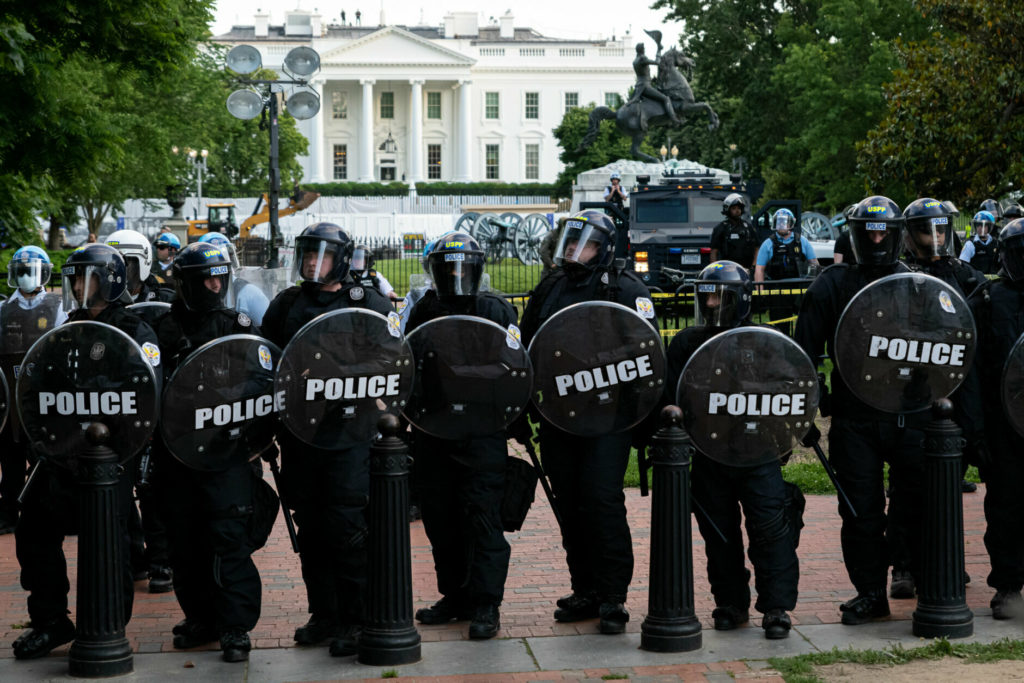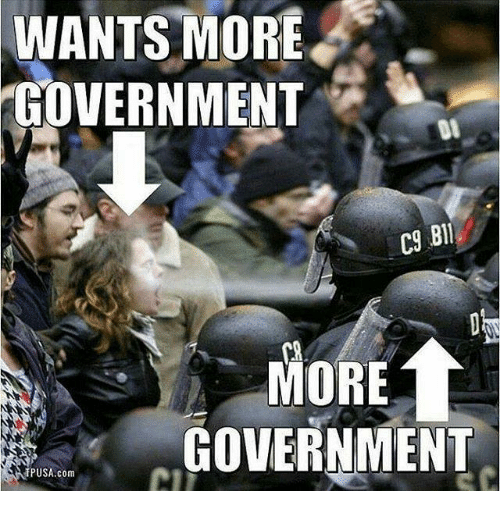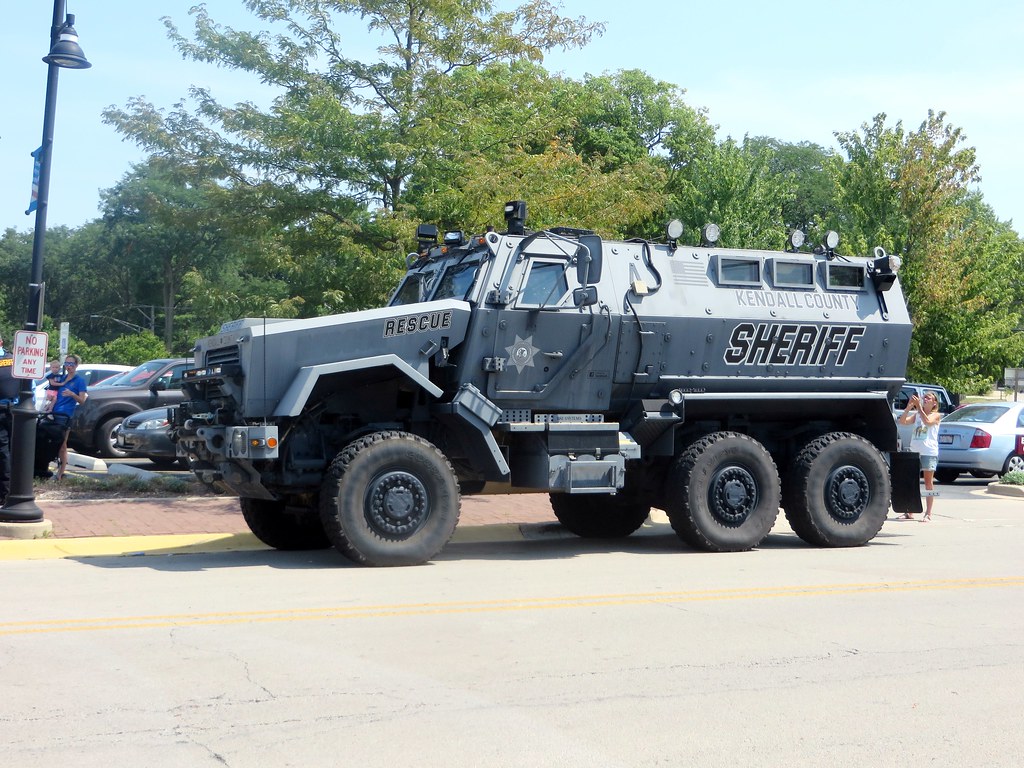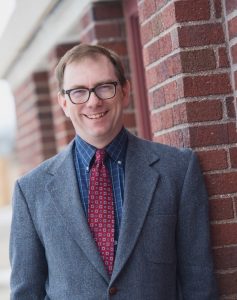Aberdeen, SD. Making a bit of news in June was the small town of Moundsville, West Virginia, population roughly 9,000. The news was the receipt by the Moundsville police of a surplus U.S. Army vehicle known as a “mine resistance ambush protection vehicle,” or MRAP. Why would a small town such as Moundsville need a military style armored vehicle? The police chief vaguely stated it could be used for “lots of things.” No doubt. I imagine there might be some tough characters in rural West Virginia, but it’s hard to imagine they are laying landmines. This is precisely the kind of militarization of the American police that has long worried observers of law enforcement. In 1960s Mayberry Barney Fife was trusted with only one bullet. Now he’d have an assault rifle and an armored attack vehicle. In urban settings the stereotype of the neighborhood flatfoot charming the local urchins armed with his billy club and revolver has been replaced with scenes of police more suited for an assault on Fallujah than the streets of the Bronx.
Why is this a problem? Here we can turn to America’s favorite rap artist, Alexander Hamilton, a man who knew something about the mean streets of New York. In Hamilton’s Federalist Papers defense of the Constitution of 1787 he considers the subject of a standing army. The Constitution’s opponents, the Anti-Federalists, were nervous about standing armies. Their concerns were twofold. First, there was an international concern. As Elbridge Gerry once noted in one of politics’ most delightful double entendres, “A standing army is like a standing member. It’s an excellent assurance of domestic tranquility, but a dangerous temptation to foreign adventure.” If one has an army, one is more likely to use it, involving the nation in a kind of misadventure akin to Hamilton and Maria Reynolds. The concern here is the incentive to war.
The other worry, only alluded to by Gerry, concerns “domestic tranquility.” Some Anti-Federalists feared that a standing army could be a force of oppression against the people, a tool by which the federal government might sink into tyranny. If the essential concern of the Anti-Federalists was that of an elite gaining power and using it against the people, consolidating power in a tyrannical central government, then one can see why giving that elite ready access to weapons might be a problem.
Enter Hamilton. Particularly in Federalist No. 8 Hamilton seeks to assuage concerns regarding a standing army. The main thrust of his argument is that the evils of a standing army are more likely to be found under the Articles of Confederation than under the new constitution. While in this particular paper Hamilton treats standing armies as a menace, let it be noted that Hamilton was not against standing armies. Quite the opposite. Hamilton notes in Federalist No. 25 that while state militias formed a notable part of the revolutionary effort, national safety required a level of professionalism that a part-time militia was unlikely to achieve. In addition, given the importance of the seas for commerce, “we must endeavor, as soon as possible, to have a navy,” he argues in Federalist No. 24. Eventually whiskey producers in Western Pennsylvania would learn that Hamilton was in favor of a standing army and was not afraid of using it against American citizens. If New York Times staffers are afraid of Tom Cotton, wait until they meet Alexander Hamilton.
Still, the purpose of the Federalist project was to persuade, so for the sake of argument in Federalist No. 8 Hamilton concedes a reasonable anxiety over standing armies. Hamilton argues in this paper that the temptation for a standing army arises out of disorder. Citizens will submit to steeper controls to the extent fear of disorder increases. “The violent destruction of life and property incident to war,” Hamilton writes, “the continual effort and alarm attendant on a state of continual danger, will compel nations the most attached to liberty to resort for repose and security to institutions which have a tendency to destroy their civil and political rights. To be more safe, they at length become willing to run the risk of being less free.”
This contention leads to his argument that despite the new constitution providing for a more vibrant central government and having no provision against a standing army, the people had more to fear from standing armies under the Articles than under the Constitution. John Jay, in Federalist No. 3, had already made the argument that thirteen states acting as mini-independent nations only multiplied the potential causes of war. Hamilton argues in this vein in Federalist No. 8. In a disunited confederacy, he contends, “The weaker States or confederacies would first have recourse to [standing armies], to put themselves upon an equality with their more potent neighbors. They would endeavor to supply the inferiority of population and resources by a more regular and effective system of defense, by disciplined troops, and by fortifications.” As the states see themselves as competitors, not as a Union, their unease will cause them to resort to standing armies to assuage the people’s anxiety.
The existence of thirteen standing armies due to the constant threat of disorder brought about through competition and a weak central government is the real threat to liberty. Hence Hamilton concludes that what today would be called a police-state is more likely under the Articles of Confederation than under the Constitution. Hamilton writes, “The perpetual menacings of danger oblige the government to be always prepared to repel it; its armies must be numerous enough for instant defense. The continual necessity for their services enhances the importance of the soldier, and proportionably degrades the condition of the citizen.” Persistent unease regarding public order weakens the liberty of the citizen. Hamilton concludes, “The military state becomes elevated above the civil. The inhabitants of territories, often the theatre of war, are unavoidably subjected to frequent infringements on their rights, which serve to weaken their sense of those rights; and by degrees the people are brought to consider the soldiery not only as their protectors, but as their superiors.”
Hamilton is using the specter of the standing army to argue for the Constitution. Standing armies will rise in prominence to the extent people feel insecure in their rights. If the United States devolves into thirteen competing states, each state will feel the need to have a standing army to protect it against competitors foreign and domestic. So we can reach this conclusion: to the extent people are anxious, they will turn to the executive, possessing the power of the sword, for a sense of order and security.

How might this translate into our current controversies regarding policing? The militarization of the police and their pervasive presence in our major cities serves as a kind of standing army. While support for the police has taken a hit recently, trust in the police still remains fairly high. Conspicuously, the military is the only institution besides “small business” with more trust than law enforcement. (Note, however, deep racial differences in attitudes toward law enforcement).
Tocqueville argued that democratic societies are marked by unease, a kind of restlessness amidst prosperity. This stems from democratic commitments to equality and individualism. Equality means that no one is better than I am, but also that I am no better than anyone else. There is no generally agreed upon authority to help guide me in making sense of the world. Also, a lack of aristocratic hierarchy means that democratic society is more tumultuous than aristocratic society. Tocqueville notes that Americans work so hard to acquire wealth because there is no guarantee of its permanence. In America, fortunes are made and fortunes are lost. They are less likely to be passed along through generations. In short, democratic society is naturally anxious, lacking the order and meaning that aristocratic societies take for granted. Democratic peoples must create what comes naturally to aristocracies. Tocqueville’s appreciation of American local self-government, the power of associations, and the influence of religion stems in large part from his recognition that these phenomena mitigate the anxiety inherent in a democratic people.
So look again at the Gallup poll of trust in institutions. One needn’t be a social scientist to see the trend. Nearly every institution—religion, news media, each branch of government, schools, banks—has seen a precipitous drop in trust over the last thirty-five years. Both Robert Putnam and Charles Murray have well-documented the decline in American civil society. The breakdown of the family is nearly complete, especially for African-Americans, amongst whom three-quarters of all children are born outside of marriage. White illegitimacy rates now match the levels at which Daniel Moynihan warned of a “crisis” in the Black family in the 1960s. One of the soundest findings of social science is that children raised outside of two biological parents are more susceptible to nearly every social pathology imaginable.
Further, a recent re-read of Chris Arnade’s magnificent Dignity impressed upon me the extent to which the poor and working-class people he encounters have suffered from the export of good jobs that used to come to those with “only” a high-school degree. Whether it’s Milwaukee, Selma, or Cairo, Illinois, the constant refrain is “things were okay here until all the good jobs left.” Many Americans are anxious, with good reason, and the institutions that Tocqueville and modern observers point to that can mitigate that anxiety are weaker than ever. As Clay Routledge has argued, “Liberalism is an existential paradox. By unshackling humans from traditional cultural and social structures, it has freed us to pursue aspirations and experiences based on our own personal interests,” yet, “the more people privilege an individual self (a self defined by personal attributes and interests) over an interdependent self (a self defined by cultural roles and duties), the more vulnerable they are to feeling like they don’t matter, that they lack social significance.” Chris Arnade would say they lack dignity. America’s sixty-year (at least) war against authority has taken its toll.
Stemming from his argument in Federalist No. 8, I think a Hamiltonian take on our current predicament is that precisely by focusing on Routledge’s “individual self” as opposed to a self defined by duty and embedded in authoritative, meaning-giving institutions, we have a society with the unease that Hamilton predicts will give rise to standing armies. The source of unease is different, but it is uneasiness about security nonetheless. The “state of continual danger” today is not the threat of armed invasion by enemies foreign or domestic, but the danger of meaninglessness, of loneliness, of social decay, all of these often leading to the drug use and prostitution that Arnade finds so common. While recent violence in places such as Portland have provoked a federal response, it is our local police forces who represent the regular presence of state violence in our communities. The desire for safety in the contemporary context has not meant the United States military prowling our streets (that standing army has gone on Gerry’s “foreign adventures”), but it has given rise to large, militarized, and aggressive police who are seen, rightly perhaps, as the only authoritative institution capable of providing order and protecting rights. The undermining of institutions such as the church and family has left the state as the only legitimate body undergirding the social order.
What the George Floyd and other cases show us is that it is a dangerous game to give this much authority, backed with this much firepower, to an arm of the state. The feeling of African-Americans that they are constantly pestered by law enforcement is in part due to the ubiquity of aggressive law enforcement in certain neighborhoods. “Defunding the police” or even reducing their numbers won’t address the underlying malaise. My goal here is not to blame the police, who have a thankless job that most perform admirably, but to explain why policing may be increasingly militaristic. To the extent Tocqueville’s character-and-meaning-creating institutions such as private associations, religion, and the family are undermined, some other entity must step in the fill the void. The power of the police in our society is a symptom of a much deadlier disease.
The official Black Lives Matter (as opposed to black lives matter) position against the nuclear family thus undermines the cause of reigning in the police. If one were to be cynical one might argue that it is not oppressive government that BLM, Antifa, and the like oppose, but oppressive government directed by someone other than themselves. To the extent BLM exists as a revolutionary entity seeking to destroy authoritative civilizational institutions, it ironically empowers the state, and that means the police.

There is an internet meme of a radical protester screaming at the police. On the left of the image is the screaming protester with the caption “Wants more government.” On the right of the image is a policeman drenching the protester with pepper spray. Its caption reads “More government.” Hamilton tells us that people do not wish to feel insecure. Like the “good men” that Lincoln noted will give up on free government in the wake of mob rule, Hamilton warns that those who fear their rights are threatened will be prone to accept tyranny. Hamilton favored a strong, effective government armed with adequate powers so that disorder would not lead to calls for despotism. As primary author of Washington’s Farewell Address, with its invocation of religion and morality, Hamilton was certainly aware that the character of the citizenry matters for the perpetuation of free government. A shortcoming of Hamilton’s thought, however, was that he did not think systematically about how to maintain the informal order on which liberty depends, perhaps taking such order for granted. Hamilton’s distrust of local government made some sense in his day, but the threat of our day is over-centralization, not chaotic disunion. Ironically, to prevent this government from using the power of the sword, a sobered Hamilton might today suggest revitalizing those institutions of meaning that Tocqueville thought so important for the maintenance of ordered liberty. Those worried about police abuse would do well to heed this warning.





2 comments
Will Woodwose
The Empire always comes home
Rob G
“As primary author of Washington’s Farewell Address, with its invocation of religion and morality, Hamilton was certainly aware that the character of the citizenry matters for the perpetuation of free government. A shortcoming of Hamilton’s thought, however, was that he did not think systematically about how to maintain the informal order on which liberty depends, perhaps taking such order for granted.”
There is a parallel shortcoming in much contemporary political thought, one which doesn’t so much take “informal order” for granted, but instead either downplays its necessity by ignoring it or denies its existence. There are, alas, educated people on both the “right” and the “left” who write and theorize as if Tocqueville never existed.
Comments are closed.